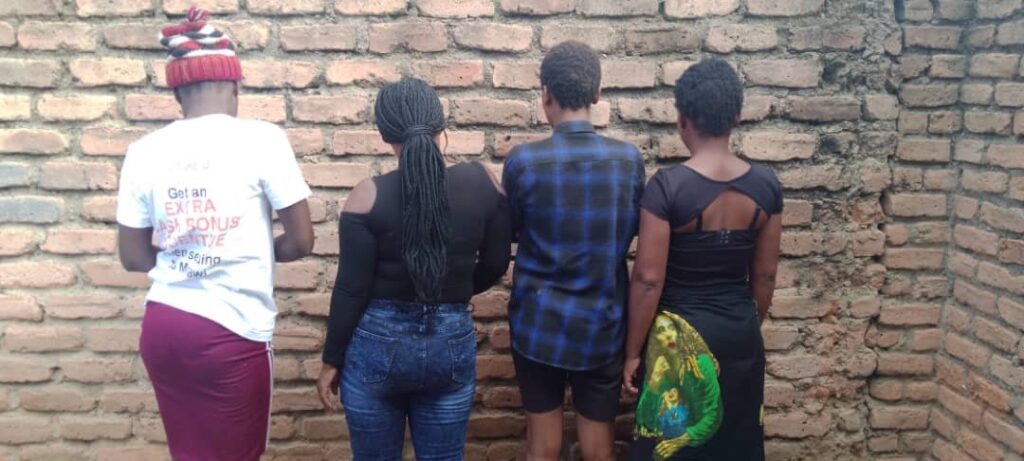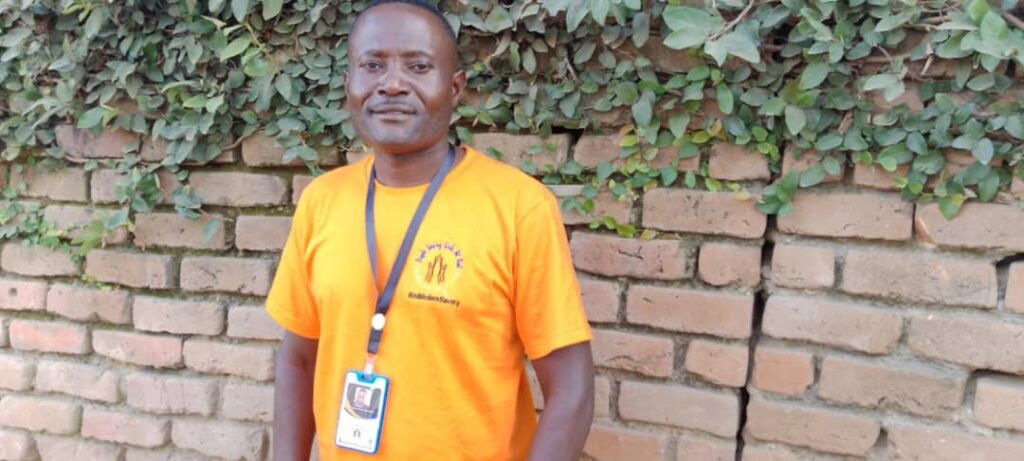By Memory Chatonda

Blantyre, July 8, Mana: Practising sex work as a means of eking a living has become a popular means for women especially young girls in urban areas in Malawi.
At night, the streets of major cities of Blantyre, Lilongwe, Mzuzu and Zomba become a hive of activity for young women thronging hotels, casinos, popular pubs and other places of entertainment seducing men or vice versa to have transactional sex.
The major reasons behind their entry into the old age trade, most of whom argue, was not for pleasure or entertainment but poverty and lack of parental care.
Lucia Triphonia (not her real name) from Mpiyama Village in the area of Traditional Authority Nchiramwera in Thyolo, says she found herself in the trade after losing her father at the age of 19.
His relations compounded the situation further when they grabbed every asset left by the deceased, leaving the children in destitution.
“This forced me to start having sex with men in exchange for things which couldn’t be easily provided by my mother. In the end, I became pregnant and dropped out of Standard 7 at Nachipere Primary School in Thyolo and married the man who was responsible for the pregnancy,” she narrates.
“Unfortunately, the marriage did not last long because the man I married had another wife with whom he had three children,” she adds with a tone of regret.
Out of desperation, Triphonia, now 23, left the child in the care of her mother [granny] and shifted to Luchenza Township to seek employment.
“I went to a certain bar where I met a lady by the name of Zione. She introduced me to her female boss. After narrating my story to her, she advised me to join sex work which I cordially accepted,” confesses Triphonia.
Since 2019 when she joined the industry, Triphonia has criss-crossed the country offering sex for money and other basic needs for her survival.

The case of Triphonia is not completely new in Malawi. Available data from African Institute for Development Policy (AFIDEP) says as of 2017, Malawi had approximately more than 32,000 sex workers with the possibility that the figures might have escalated at the time of going to print.
However, a United Nations Population Fund 2010 study titled: ‘Empowering Young Sex Workers for Safer Sex in Dowa and Lilongwe Districts of Malawi,’ indicates that not all girls like Triphonia are happy to be in the trade such that if given other options, they would abandon the trade for something meaningful in life.
Jogged by the development, People Saving Girls at Risk (PSGR), a non-governmental organization advocating for the rights of women and girls in Malawi has embarked on a six year ‘creating space for survivors’ project to empower female sex workers [FSW] with skills for viable income generating activities [IGAs].
The project, a consortium of five countries which include India, Nepal, South Africa, France and Malawi is being bankrolled by a French organisation called Pellon Bellon.
PSGR Team Leader, Caleb Ng’ombo says apart from sex workers, the project also looks at victims of human trafficking, child marriages and child labour.
“Our core purpose is to empower these vulnerable groups with vocational and other skills that they can use to generate income to reduce their susceptibility to sex work, early marriages or child labour,” explains Ng’ombo.
“Currently, we’ve entered into negotiations with different institutions like Malawi Institute of Tourism to enrol those willing to be trained at the institution with financial support coming from PSGR.
“Upon graduating, it will be up to them to form a cooperative whereby they can choose to run a food café and if that will be the case; the organization shall support them with equipment. Or if they will opt to join the job market, PSGR shall provide necessary job references,” he emphasises.
Ng’ombo discloses that currently, the organisation has earmarked drop-in centres in Blantyre, Balaka and Mangochi where the targeted groups could access counselling and mentorship services on a short and long term basis, respectively.
“Much as we would have loved to implement the intervention at once across the country, we thought of starting with three districts only in the southern region targeting 600 beneficiaries by the end of the project.

“We started with Blantyre because it is a hub of socio-economic activities while Mangochi was chosen on account that it is a tourist attraction destination and together with Balaka, it is the place where cases of child trafficking and early marriages are rampant,” says Ng’ombo.
However, N’gombo expresses delight with the overwhelming response the organisation has so far received from female sex workers since the inception of the project in March this year.
“Most of the female sex workers have embraced the initiative and they have agreed with us that sex work is a type of formal exploitation and they want to withdraw. We will do everything possible to rescue them through our programmes,” he says.
To this effect, Triphonia, who together with other women feel the project has come at an opportune time describes the intervention as a conduit for rescuing girls from economic exploitation.
Similarly, Bertha Ngwazi (not her real name), who has practiced sex work for three years says she yearns to find an alternative source of generating income which can be appreciated by her relations.
“Right now, I do not visit my relatives and they do not even know where I am for fear of reprisals. But if I can acquire such vocational skills like brick laying or carpentry and joinery, I am hopeful that I can find a better job,” she says.
Ministry of Gender, Community Development and Social Welfare spokesperson, Fred Simwaka heaps praise on PSGR for empowering FSWs with technical and vocational skills.
Simwaka observes that the initiative complements government efforts in uplifting the social and economic status of vulnerable women in Malawi.
He adds that government is implementing different interventions to widen women empowerment through the National Economic Empowerment Fund window which encourages women to access loans to venture into different IGAs to expand their economic independence.
“…with such interventions, women like Triphonia would be able to access soft loans to start businesses to support their livelihoods. This will help to reduce their vulnerability to commercial sex,” Simwaka emphasises.
Mana/mkc

